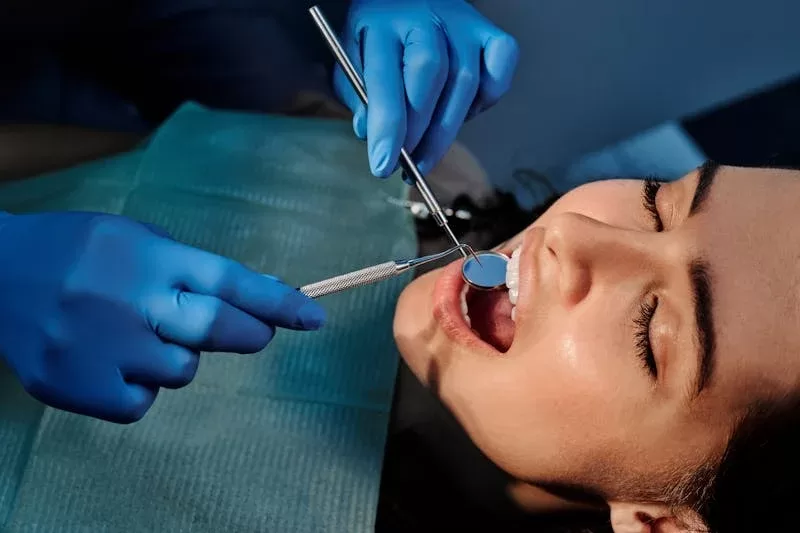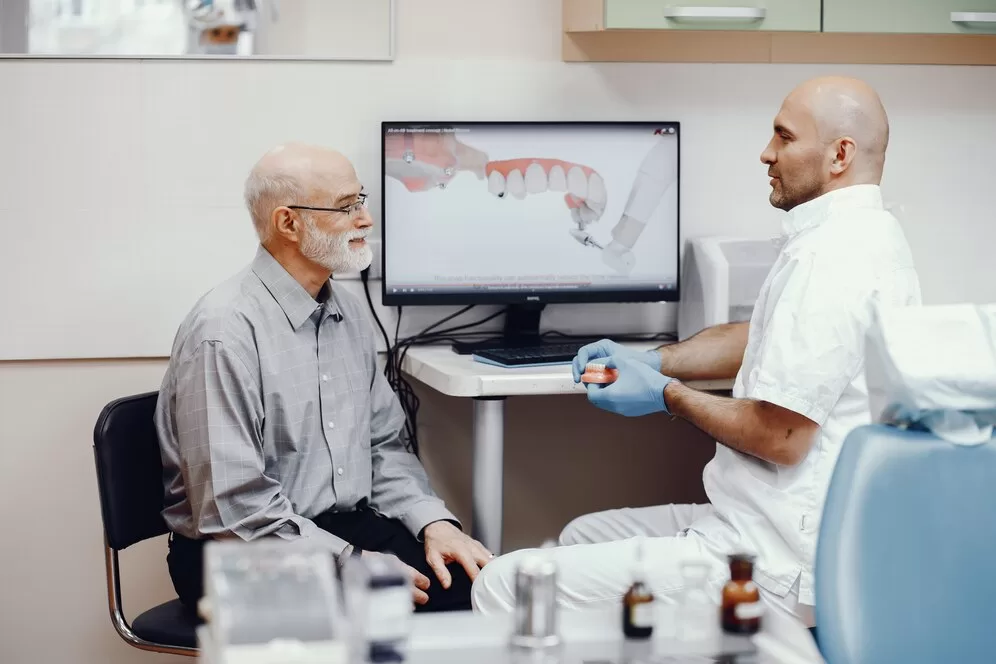The term “wisdom teeth” originates from the Greek word odontias sophias, which translates to “teeth of wisdom”. This name reflects the fact that wisdom teeth typically emerge between the ages of 17 and 25 when individuals are considered to be older and presumably wiser.
These third molars are the last teeth to develop in the mouth. Although they do not cause any particular harm or discomfort initially, they frequently become problematic as they can cause pain, infections, and misalignment of other teeth. Since most people, don’t have enough room inside their mouths for these extra teeth.
Having your wisdom teeth removed at the correct time is important. Too early, and surgery may not be necessary. Too late, and the removal of wisdom teeth can result in a more complex surgical procedure, often requiring an extended recovery period.
So how does one know when the time is right to get one’s wisdom teeth removed? This article will take you through all that you need to know about wisdom teeth, their removal, and the best time to take action.
Understanding Wisdom Teeth: What Are They?
Wisdom teeth are a set of third-party molars that are located at the back of the mouth. In the past, when human diets consisted of hard, coarse foods like roots, tough meats, and fibrous plants, wisdom teeth played a crucial role in aiding chewing.
As we evolved and started consuming softer, processed foods, our jaws became smaller, and thus there was not much space for these big molars.
If there is insufficient space for the wisdom teeth within the gums, they might end up growing in at weird angles or remain caught under the gum, which would end up causing discomfort.
This makes extraction a necessary procedure. That is why most dental professionals recommend removing them even before it complicates the situation further.
Signs You May Need Wisdom Teeth Removed
If you’re not sure whether or not you should remove your wisdom teeth, pay attention to these common signs and symptoms:
- Persistent Pain: If you have pain or tenderness in the back of your mouth, especially around your molars, this may lead to impaction of wisdom teeth, crowding of neighboring teeth, or teeth struggling to break through your gums.
- Swelling and Redness: Swollen, inflamed gums are usually a sign of infection or caused by struggling wisdom teeth coming out.
- Jaw Stiffness: Impacted wisdom teeth create jaw pressure, making it tight and hard to fully open up your mouth.
- Gingival Infection: A partially erupted wisdom tooth creates a pocket in which food particles and bacteria are collected, leading to infection of the gingiva.
- Damage to the Surrounding Teeth: If your wisdom teeth are growing at an angle, they might push on your other molars, and this could cause potential damage or push them out of alignment.
These symptoms could be early indicators of more severe issues developing later on, chronic infections, or even destruction of the jawbone. If you have these signs, it may be worth considering when you should have your wisdom teeth removed to avoid further complications.
Get yourself checked up now at Ridge Oral Surgery.
The Best Age to Have Wisdom Teeth Removed
The determining factor for the ideal timing for extraction of impacted wisdom teeth is age. For most patients, the ideal time is between the ages of 17 and 25 years. That’s the time when the root of these teeth has partially come out but is not fully developed, making the process of extraction swift and easy.
Why younger patients have advantages during early removal:
- Less healing and recovery time
- Less complication rate
- Less chance of any nerve damage or root entwinement
If the wisdom teeth removal is done too late, the procedure becomes more complicated. As we grow older, the jawbone becomes denser, and, hence, extraction is much harder. The roots of the wisdom teeth grow longer and closer to the nerves in the jaw, thereby making nerve damage during extraction all the more likely.
Although wisdom teeth may be removed at any age, early removal generally has a much better prognosis, with fewer risks involved and shorter healing times.
Go through this explanatory video to learn more about the removal of wisdom teeth!
Complications from Wisdom Teeth: Why Early Removal Matters
Wisdom teeth are usually delayed to an age when their removal creates several complications, some quite serious. Let’s look into the following possible risks in a little more detail:
- Crowding: Wisdom teeth can cause overcrowding, which is a common problem. These molars sometimes push into the adjacent tooth while trying to come out, causing misalignment. This is particularly a threat to individuals who have orthodontic treatments such as braces. Years of dental work may be undone once wisdom teeth start erupting, leading to uneven or gapped teeth.
- Impacted teeth may even develop cyst formation around the tooth. This fluid-filled sac can damage the jawbone, surrounding teeth, and even nerves.
- Partially erupted wisdom teeth provide an ideal medium for bacteria growth, resulting in the trapping of food particles between the gum and the tooth, leading to caries, cavities, and periodontal disease. If not treated on time, further infection may spread to other teeth.
The Removal Process: What to Expect
If you have decided upon wisdom tooth extraction, here is what you can expect during the process.
- Consultation and X-rays: To begin with, our oral surgeon will have a consultation with the patient, which in most cases consists of X-rays to check on the position and state of teeth in their mouth.
- Anesthesia will be given according to the complexity of your extraction and comfortability. This may be local anesthesia, where it will numb only the area surrounding your wisdom teeth, sedation anesthesia, or even general anesthesia for complex cases when several teeth are involved.
- Extraction: An incision is made in the gum to expose the tooth. At times, surgeons have to remove a small portion of the bone so as to release the tooth. After that, the extraction is done with much care, and then the incision is stitched.
- Recovery after Surgery: After surgery, you will want to rest and take care as instructed by your oral surgeon. This usually includes doing your best to minimize swelling with ice packs, sticking to soft foods, and avoiding strenuous activities for the first couple of days.
- Managing Pain: Most of the pain after the procedure can be managed with over-the-counter pain relievers; however, your surgeon can always prescribe you stronger pain medication should the need present itself.
At Ridge Oral Surgery, we go to extreme lengths to make sure comfort and safety are paramount throughout the process so that you receive optimal care.
Take a look at our top-rated services now!
Early Action Ensures Long-Term Oral Health
Timely removal spares you pain, discomfort, and further dental complications for many years. Early treatment, especially in your late teens or early twenties, you’re able to reduce the risks of infections or misaligned teeth. Also if time permits, take a glance to learn more about them!
Don’t wait if you have symptoms or are questioning whether now might be the time to get your wisdom teeth removed. Let us help you at Ridge Oral Surgery, for an examination and treatment plan customized to your specific needs. Your oral health depends on your actions today toward a healthier, pain-free future.





